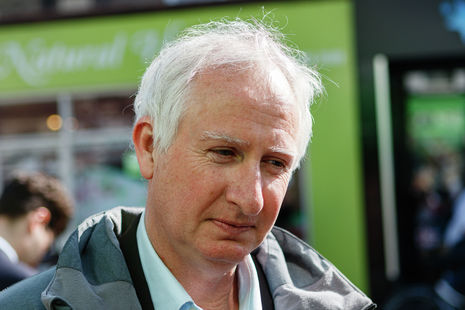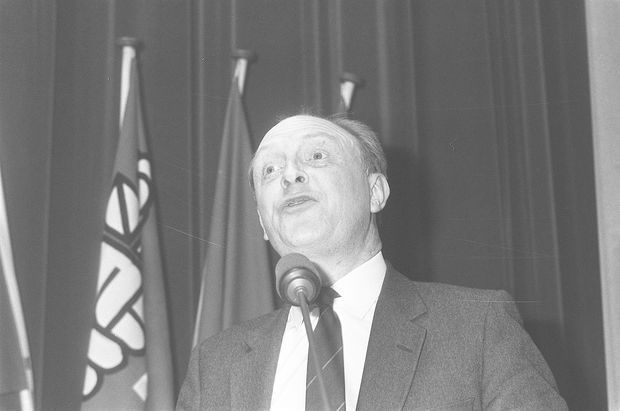‘The most extreme government in a lifetime’: Cambridge MP on Liz Truss’ early premiership
Daniel Ziechner talks the new prime minister, Starmer and engaging with younger voters in the wake of the mini-budget

Speaking to Daniel Zeichner from the House of Commons in the moments after the unveiling of a not-so-mini “mini-budget”, I couldn’t have caught the MP for Cambridge at a more opportune time. As bankers’ bonuses soar and their taxes drop, Daniel captured the frustration of a nation of anxious voters: “they’re the most extreme government we have seen in my lifetime… they deserve to be blown out of the water and that’s what I hope will happen.”
Zeichner has served as this city’s MP since 2015, having come third in the 2010 contest He hadn’t sat down with Varsity since 2019, when a Johnson government and never-ending Brexit woes seemed like the worst of our worries. Now, with a pandemic come and gone, the worst cost-of-living crisis in generations, and Liz Truss at Britain’s helm, Zeichner is more passionate than ever that things must change.
If she thought it was wrong, she should have resigned
“Kwarteng outlined 12 years of Conservative failure – Liz Truss voted for all of it. She wasn’t just an innocent bystander: if she thought it was wrong, she should have resigned.” For Zeichner, Truss’ favouring of energy companies and the wealthy represents the “nastiness of the society that’s emerged under the Tories.” Perhaps most remarkably, Zeichner sees his own grievances with Trussonomics reflected in the faces of Tory backbenchers. “You don’t see them on the TV screens, but behind Kwarteng, they look miserable.”
The 12-year period of Conservative party government which Zeichner describes corresponds to the adolescent years of Britain’s current undergraduates. One account of this, Labour faces a new problem: how to engage with a new generation of voters with no political memory of anything other than Conservative government? Zeichner muses that “in some ways, that’s the very essence of what politics is — giving people the hope that things can change.”
But is Starmer the man for the job? Zeichner, who resigned from the former Labour leader’s front bench in support of retaining membership of the Single Market, has much greater confidence in his party’s current leadership: “There’s no doubt that Jeremy touched a chord. The trouble is, by 2019 a lot of that had fallen away. Keir is not like Jeremy… I’m very confident he would be a good PM, I’m pretty confident he will win the election — you can never tell.”
If you’re on the side of the energy companies, vote Conservative
Yet, in a university city, it’s hard to ignore the strength of Corbyn’s connection with young people. Indeed, Ziechner concedes that this sense of youthful connection may be hard for the party to replicate under Starmer. Noting that although “you have to have something that touches on that idealism,” Zeichner adds that “you also have to win a whole swathe of people in a country which is very cautious. For all the people Jeremy inspired, probably almost an equal number — I’m afraid — moved away.”
The question which Zeichner thinks will confront young people in the next election, whenever it may be, is “who pays for all this? Ordinary people, students? Or the oil companies and the energy companies?” The answer, he thinks, is already apparent: “if you’re on the side of the energy companies, vote Conservative. If you’re not, don’t.”
The actions of some of the city’s residents confirm that they have reached the same conclusion as their local MP. Zeichner reports that the slogan ‘always voted Conservative — not anymore’ is increasingly being heard from constituents across the political spectrum. Labour’s role? To position themselves as a party with a sensible alternative to running the economy, which Zeichner believes is already being accomplished with the leadership of Keir Starmer and Rachel Reeves.
Ultimately, Zeichner captures the feelings of many of his constituents on Truss’ premiership so far: “I don’t think expectations were very high, and I don’t think she’s disappointed.” Conscious of my concerns of disengagement among younger voters, Zeichner sums up his message succinctly: “there’s always a choice. Don’t believe this argument that there is no alternative or you have no agency. You do, and in a democracy, that’s called voting”.
 News / Uni Scout and Guide Club affirms trans inclusion 12 December 2025
News / Uni Scout and Guide Club affirms trans inclusion 12 December 2025 News / Cambridge Vet School gets lifeline year to stay accredited28 November 2025
News / Cambridge Vet School gets lifeline year to stay accredited28 November 2025 Science / Did your ex trip on King’s Parade? The science behind the ‘ick’12 December 2025
Science / Did your ex trip on King’s Parade? The science behind the ‘ick’12 December 2025 News / Cambridge study finds students learn better with notes than AI13 December 2025
News / Cambridge study finds students learn better with notes than AI13 December 2025 News / Pembroke to convert listed office building into accom9 December 2025
News / Pembroke to convert listed office building into accom9 December 2025








